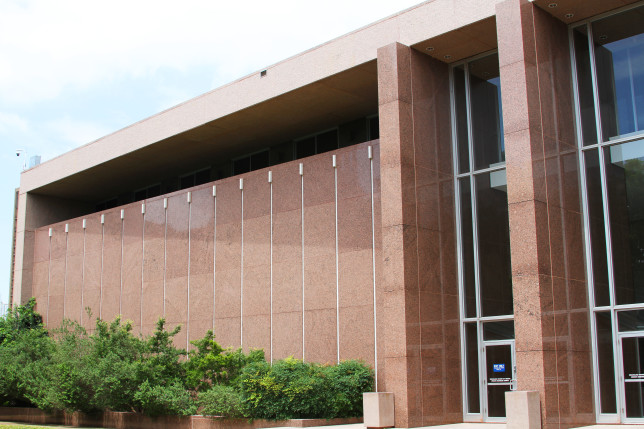Ehrke v. State
No. PD-0071-14
Case Summary written by Kylie Rahl, Staff Member.
JUDGE JOHNSON delivered the opinion of the court in which JUDGE MEYERS, JUDGE KEASLER, JUDGE HERVEY, JUDGE ALACALÁ, JUDGE RICHARDSON, and JUDGE NEWELL joined. JUDGE KELLER and JUDGE YEARY concurred.
During his arrest for public intoxication, Robert Ehrke, the appellant, discarded a cigarette pack. The arresting officers retrieved the pack and believed the substance inside was methamphetamine. The Texas Department of Public Safety laboratory tested the substance in the cigarette pack and determined it was 1.6 grams of methamphetamine.
A jury found the appellant guilty of possession of more than one gram but less than four grams of methamphetamine. The jurors sentenced appellant to seventy-five years in prison because the possession occurred in a drug free zone, which increased the minimum and maximum confinements.
Prior to trial, the appellant filed multiple motions requesting independent testing of the alleged controlled substance to determine the weight and composition. The appellant argued that the weight of the 1.6 grams justified independent testing because it was close enough to the lower punishment threshold of .99 grams. The appellant even offered to pay the cost of the independent testing. The trial court denied the motions, finding that “the defendant has not shown a particularized need for independent scientific testing, or that the result of a scientific test would change based on who performed the test, or that an independent expert would be a significant factor at trial.” Even though the trial court denied the motion for independent testing, it did state that it was “required to allow defendant’s counsel to inspect and examine any alleged controlled substance.”
After his sentencing, the appellant appealed. The court of appeals held the trial court did not err when it refused to appoint an independent expert to examine the substance. Specifically, the court of appeals found the appellant failed to make the required “preliminary threshold showing with facts or evidence that the expert’s testimony will likely be a significant factor in his defense or the State’s prosecution.”
Issues: (1) Whether the appellant, whom was charged with possession of a controlled substance, had the right to inspect or have an independent expert analyze the controlled substance. (2) Did the court deny the indigent appellant due process and effective assistance of counsel by refusing to allow and pay for an independent expert to retest the weight and composition of the alleged controlled substance?
Even though the Texas Code of Criminal Procedure Article 39.14(a) states that a defendant must show good cause before the court will order the State to “produce and permit the inspection of evidence material to any matter involved in the action[,]” the Court of Criminal Appeals explained that the right to inspect an alleged controlled substance does not require a showing of good cause. Specifically, it does not require a showing of good cause because a trial court is required to permit inspection when the substance is material to the defense of the accused. The court’s holding clarified that in any controlled substance case the substance is material to the defense of the accused; therefore, the right to inspect is absolute and the trial court must permit the inspection. The court additionally noted that in two instances a trial court is not required to grant an independent inspection. Those instances “involve situations in which either the original testing of the substance used up the entire sample or the request was not timely.”
In this case, the court determined that the trial court used the wrong standard. The trial court stated that appellant’s counsel had the right to inspect the controlled substance, but it further required the appellant show good cause in order to have an independent expert analyze the controlled substance. The Court noted that the correct standard is “the materiality of the evidence.” Because the appellant timely filed a motion to inspect and the controlled substance is material to appellant’s defense, he had an absolute right to an independent inspection. The court also explained that the trial court narrowly interpreted the word “inspection” under Article 39.14(a). The court clarified that that the word “inspect” is not limited to a visual examination of the object. The word “inspect” includes the right to perform a chemical analysis on the controlled substance. Therefore, the court held the trial court erred in refusing to allow the appellant to obtain independent testing of the controlled substance because it used the wrong standard.
As for the second issue of whether the State is required to appoint an independent expert to retest the substance, the court stated “the burden is on the defendant to provide concrete reasons for why the expert should be appointed.” The court further explained that the “absolute right” of inspection in a controlled substance case does not provide the absolute right of a state-appointed expert.
Here, the appellant’s reason for requesting an inspection was to verify the substance was actually over .99 grams of methamphetamine because if it were lower than .99 grams, his range of punishment would be substantially lower. The Court explained that the appellant did not show reason to doubt the original analysis, and, further, he failed to present any information that demonstrated there was a scientific issue in this case. Because of these reasons, the court found the appellant had not provided a significant issue of fact to require the court to appoint an expert. As a result, the court held the trial court did not abuse its discretion when it refused to appoint an independent expert.
Therefore, even though the court held the trial court properly refused the appointment of an expert, the court reversed and remanded the judgment of the court of appeals because it did abuse its discretion in denying testing at the appellant’s expense.

